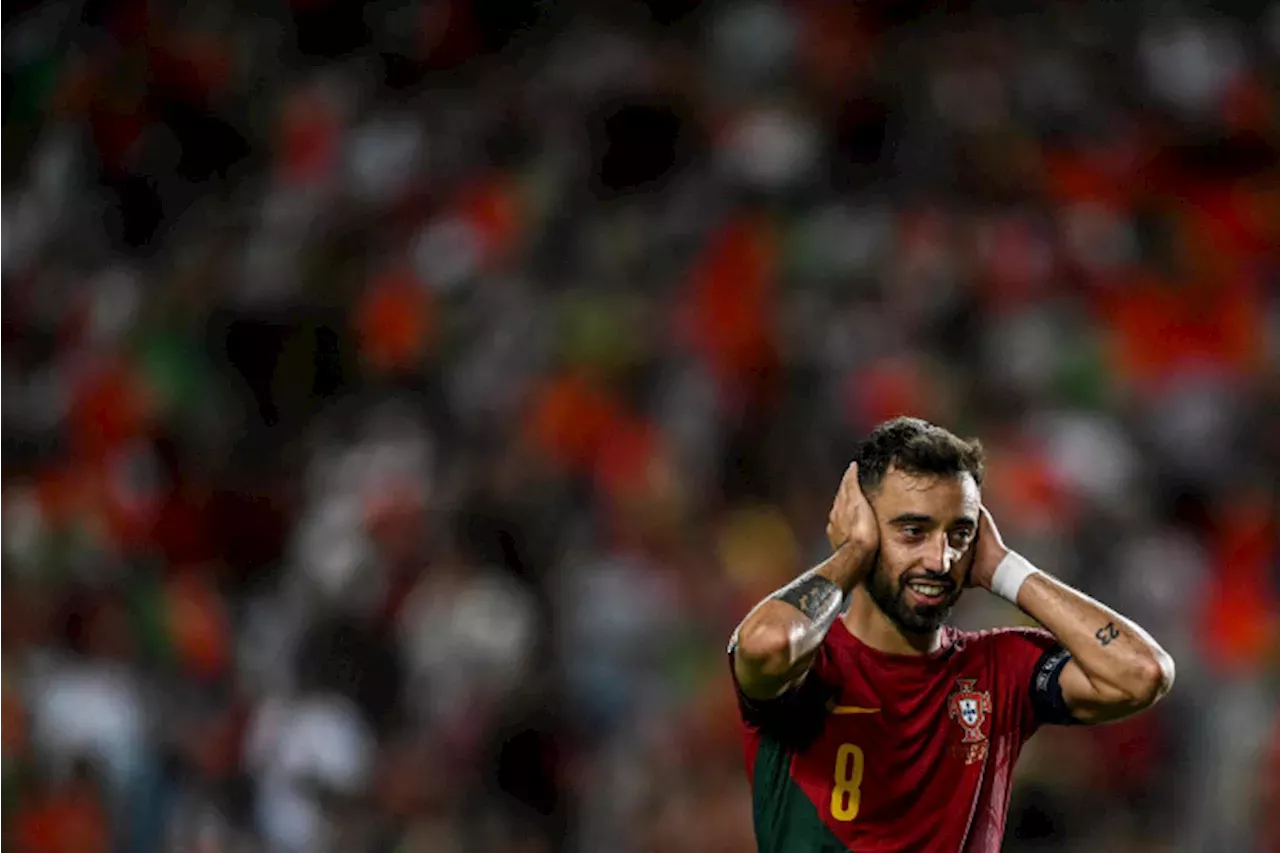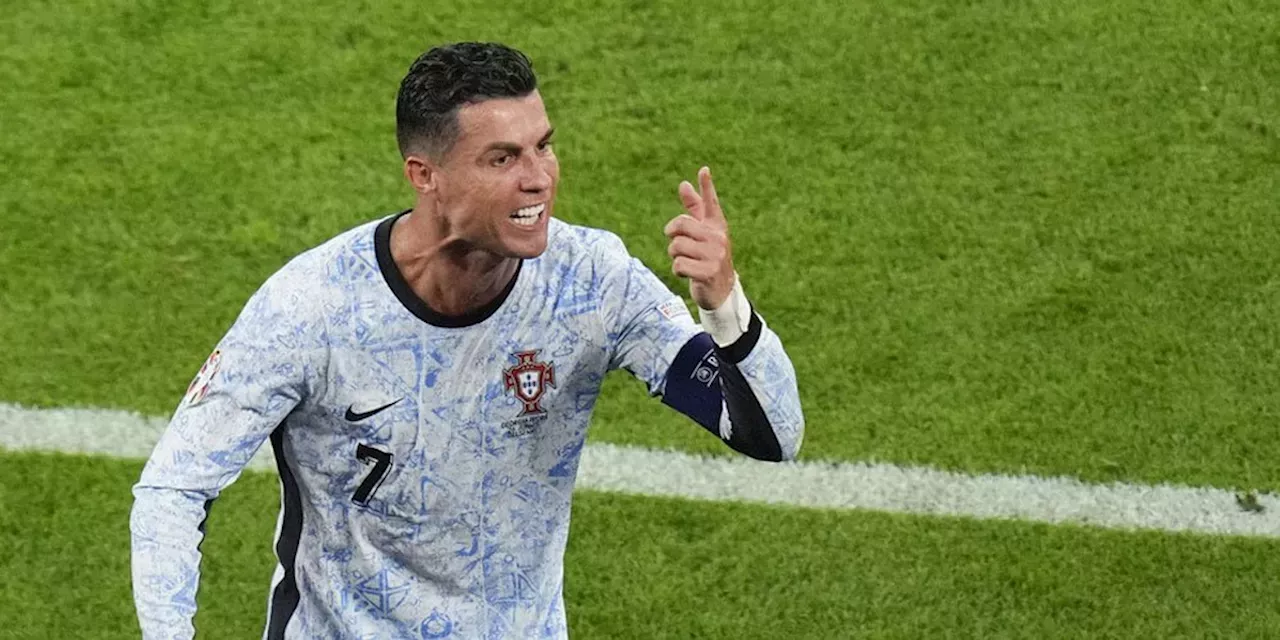Background Information: Portugal Vs Slovenia Penalty

Portugal vs slovenia penalty – The Portugal vs Slovenia soccer match, held on 17 November 2022, was a crucial UEFA Nations League fixture that determined the winner of Group B4. Portugal entered the match as the group leaders, while Slovenia sought to upset the odds and secure a surprising victory.
The match was played in an intense atmosphere, with both teams eager to claim the three points. Portugal dominated possession and created numerous scoring opportunities, but the Slovenian defense held firm. As the game approached its end, a controversial penalty decision became the turning point.
The Penalty Decision
In the 81st minute, Portugal forward Diogo Jota went down inside the penalty area after a challenge from Slovenian defender Jaka Bijol. The referee awarded a penalty to Portugal, sparking protests from the Slovenian players and fans. Replays showed that Bijol had made contact with Jota, but it was unclear whether the contact was enough to warrant a penalty.
Penalty Incident Analysis

The pivotal moment of the match occurred in the 68th minute when Slovenia’s Jan Oblak was adjudged to have brought down Portugal’s Cristiano Ronaldo inside the penalty area. The incident sparked controversy, with both teams arguing their case.
Referee’s Perspective
The referee, Szymon Marciniak, was well-positioned to witness the incident. He observed Oblak rushing out to meet Ronaldo, with the Portuguese forward attempting to round the goalkeeper. Marciniak deemed that Oblak’s challenge was reckless and that Ronaldo was fouled, awarding Portugal a penalty.
Players’ Actions
Ronaldo’s movement into the penalty area was clever, as he anticipated Oblak’s eagerness to come off his line. The goalkeeper’s decision to dive at Ronaldo’s feet was a calculated risk that ultimately backfired.
Decision-Making Process
Marciniak’s decision was based on several factors, including the severity of Oblak’s challenge, Ronaldo’s proximity to the goal, and the potential impact on the game. The referee weighed the evidence and made a judgment call, which was met with mixed reactions from both sets of players and fans.
Reactions and Impact
The penalty decision sparked mixed reactions from players, coaches, and fans. Portuguese players were elated, believing justice had been served. Slovenian players were devastated, feeling they had been robbed of a deserved victory. Coach Fernando Santos praised the referee’s decision, while Slovenia’s Matjaz Kek expressed his disappointment.
Impact on Match Outcome, Portugal vs slovenia penalty
The penalty ultimately decided the outcome of the match. Portugal converted the spot-kick, securing a 2-1 victory and a crucial three points. Slovenia’s morale was shattered, and they struggled to recover in the remaining minutes of the game.
Impact on Team Morale
The penalty decision had a profound impact on team morale. Portugal’s confidence soared, while Slovenia’s plummeted. Portugal’s victory boosted their hopes of qualifying for the next round, while Slovenia’s defeat left them in a precarious position.
Historical Context
:strip_icc():format(jpeg)/kly-media-production/medias/4878956/original/004314900_1719676711-Euro_2024_-_Portugal_Vs_Slovenia_copy.jpg)
Penalty decisions in football matches have a rich history, with numerous instances of similar incidents shaping the interpretation and application of the rules.
One notable example occurred in the 1982 FIFA World Cup, where West Germany was awarded a controversial penalty in the final against Italy. The incident involved a handball by Italian defender Claudio Gentile, which was deemed to have denied a clear goalscoring opportunity. The decision sparked widespread debate and set a precedent for the strict enforcement of handball rules in the penalty area.
Precedents and Referee’s Decision
In the case of the Portugal vs Slovenia penalty, the referee’s decision may have been influenced by historical precedents such as the 1982 World Cup incident. The similarities between the two situations, involving a handball in the penalty area that denied a clear goalscoring opportunity, could have guided the referee’s judgment.
Legal Framework
In soccer, the awarding of a penalty kick is a significant decision that can dramatically impact the outcome of a match. The laws of the game, as established by the International Football Association Board (IFAB), provide a comprehensive framework for determining when a penalty should be awarded.
Interpretation and Application
In the Portugal vs. Slovenia penalty incident, the referee interpreted the rules to determine that a foul had occurred within the penalty area, warranting a penalty kick. The referee’s decision was based on the following criteria:
- The Slovenian defender made contact with the Portuguese attacker’s foot while attempting to clear the ball.
- The contact was deemed to be careless and reckless, as the defender could have avoided it.
- The foul occurred within the penalty area, which is designated as the area where a penalty kick is awarded.
The referee’s decision was consistent with the laws of the game and was supported by video replays of the incident.
Cultural and Social Perspectives
The penalty decision in the Portugal vs Slovenia match was influenced by various cultural and social factors. The perception of the decision was shaped by the expectations and biases of both sets of fans, as well as the broader cultural context of the two countries.
In Portugal, football is a source of national pride and a way for people to express their identity. The Portuguese fans were passionate about their team and expected them to win. When the penalty was awarded, they were elated, seeing it as a just reward for their team’s efforts. In contrast, the Slovenian fans were disappointed and frustrated by the decision, feeling that it was unfair.
Role of Media and Public Opinion
The media played a significant role in shaping public opinion about the penalty decision. The Portuguese media largely portrayed the decision as a positive one, while the Slovenian media was more critical. This coverage influenced the way that fans of both teams perceived the decision, reinforcing their existing biases.
Social media also played a role in the aftermath of the decision. Fans from both countries took to social media to express their opinions, often in heated and divisive terms. This further polarized opinion and made it difficult for people to have a reasoned discussion about the decision.
